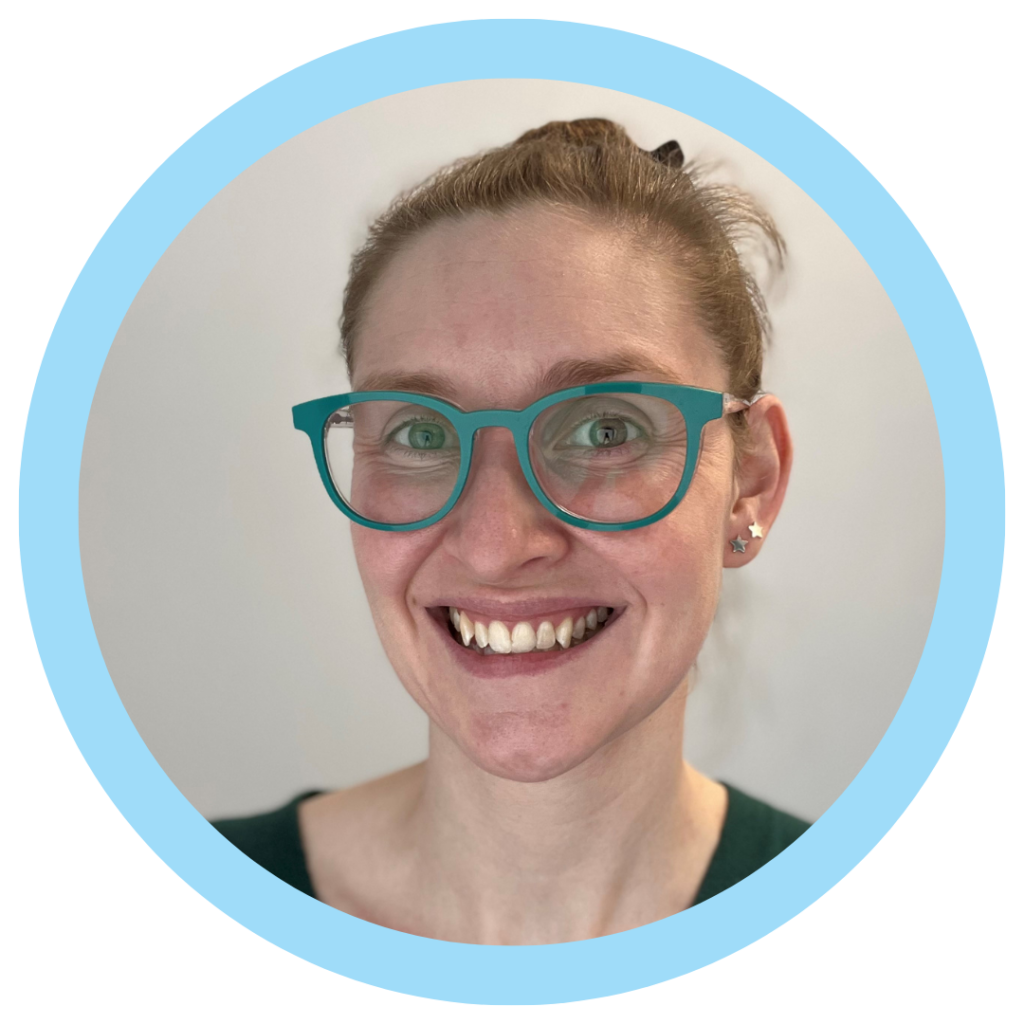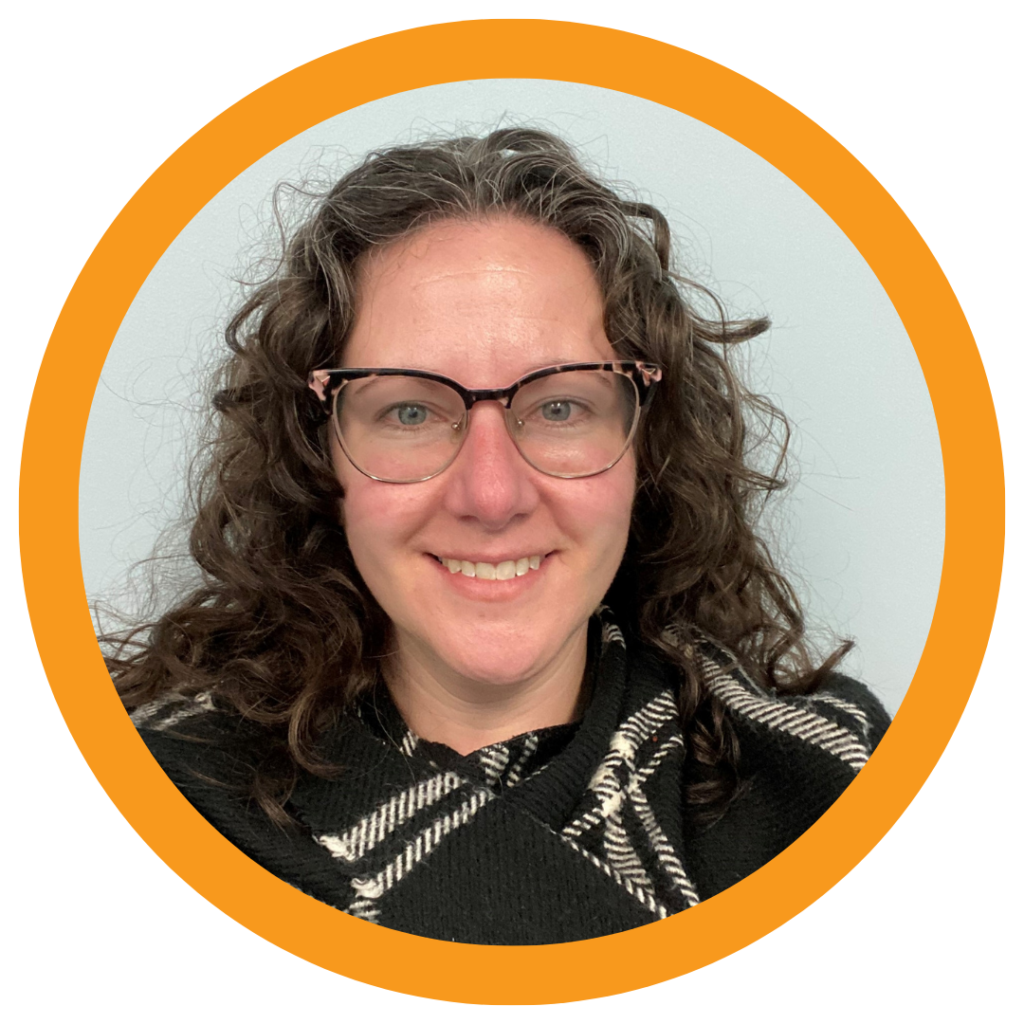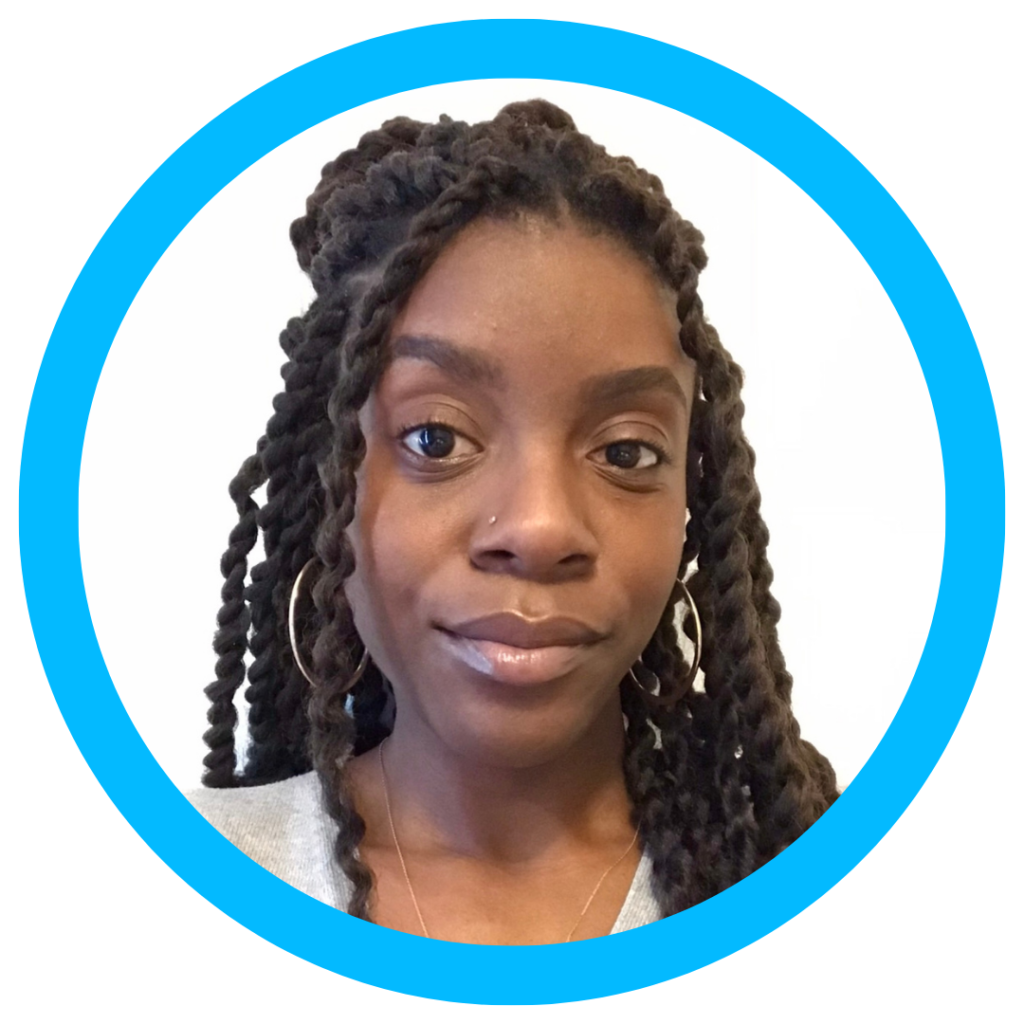Alishia Chamney, M.H.Sc., S-LP(c)1; Melany Cox, M.H.Sc., S-LP(c)1; Janicka Auguste, BA, CDA1; Taryn Eickmeier, PhD.1
1Grandview Kids, Durham Region, Ontario, Canada; Research@grandviewkids.ca
Contact us

Alishia Chamney, M.H.Sc., S-LP(c)
Speech-Language Pathologist, Early Years
Office: 437-703-6662

Melany Cox, M.H.Sc., S-LP(c)
Clinical Manager, Early Years West
Office: 437-738-0117
Email: Melany.Cox@grandviewkids.ca

Janicka Auguste, B.A., CDA (Hons.)
Communicative Disorders Assistant, Early Years
Knowledge Broker, Research, Innovation and Knowledge Mobilization
Office: 437-738-0046
Abstract
As a response to an increased recognition of delayed echolalia in preschool children, Grandview Kids Speech-Language Pathologists developed an evidence-informed parent workshop focused on Gestalt Language Processing (GLP). Following one-year of implementation, an outcome evaluation identified a change to parent knowledge, awareness, and self-efficacy in supporting their children’s language development. This presentation describes the workshop development and initial outcomes. It highlights the need for further outcome evaluation and for the development of a validated outcome measure sensitive to GLP. This work informs a national dialogue on echolalia and GLP as an emerging priority in early language acquisition.
Summary
Delayed echolalia is a hallmark of Gestalt Language Processing (GLP). Within the Preschool Speech and Language Program at Grandview Kids, clinicians observed that existing service pathways did not address the needs of Gestalt Language Processors. Informed by parent-coaching models, the team developed a parent-mediated intervention pathway for GLP. The initial intervention is a parent education workshop.
This presentation aims to (1) enhance knowledge of GLP; (2) describe the evidence informing the workshop; and (3) present the preliminary outcome evaluation findings. The contents of this poster will reflect all aims.
Aim 1: A literature review documenting the prevalence, characteristics, and identification of GLP in children was conducted and used to inform workshop content.
Aim 2: Parent- and caregiver-mediated interventions are a key feature of existing service delivery pathways for preschool children at Grandview Kids. Parent-mediated intervention models may improve communication and language outcomes for children and increase parent use of supportive strategies.
Clinicians identified that existing interventions provided insufficient information and support for GLP. The workshop was developed as an initial intervention to bridge this gap.
Aim 3: Five virtual workshops were hosted in English between November 2022 and September 2023. 207 clients were referred, 124 attended.
Parents or caregivers were referred to the workshop if GLP was identified by a Speech-Language Pathologist during an assessment.
The 2.5-hour virtual workshop was presented on a Saturday morning. Workshop objectives included: (a) defining echolalia; (b) introducing Analytic Language Processing (ALP) versus GLP; (c) explaining the Natural Language Acquisition framework; and (d) providing supportive strategies.
During the virtual workshop, parents completed a post-workshop evaluation and a pre-post self-report assessment of their child(ren)’s GLP stage(s). Participation was voluntary and data were anonymized.
76 parents responded to the post-workshop evaluation. A majority agreed or strongly agreed with the statements: “I have a better understanding of my child’s language development” (95%, n=72); “I am more aware of strategies I can use to help my child develop his/her communication skills” (95%, n=72); and “I am able to apply strategies learned today to my everyday life” (96%, n=73).



100 parents responded to the pre-post survey regarding their child’s GLP stage. After a brief review of all stages, parents provided a rating of their child’s GLP stage. Parents rated GLP stages again immediately following in-depth education on GLP stages. More parents reported their children had a later stage of GLP compared to their pre-workshop rating (e.g., -5 in Stage 1; -10 in Stage 2; 6+ in Stage 3; 7+ in Stage 4). There were no responses in Stage 5+ and 2 were ‘unsure.’

Discussion
There is limited research evidence supporting GLP interventions. Initial results suggest education on GLP can increase self-reported knowledge and application of supportive strategies in parents.
Results also suggest that education on GLP impacts reported GLP stage. More research is required to determine if this change results in a more accurate representation of a child’s stage of language development.
While these results suggest parents benefit from this workshop, further evaluation is needed. The workshop was developed to be part of a service delivery pathway which includes caregiver coaching. Future studies must also consider both the impact of the GLP intervention pathway on child outcomes and the validation of an outcome measure sensitive to GLP. In the interim, this work informs a national conversation on GLP.
References
References
Arnold, C. (2019). Flipping the Script: Prioritizing the Autistic Voice in the Understanding of Scripting as “Key to the Autistic Identity.” [Doctoral Dissertation, University of San Francisco] USF Scholarship Repository. https://repository.usfca.edu/diss/499/
Beaudoin, A.J., Sébire, G. & Couture, M. (2014). Parent training interventions for toddlers with autism spectrum disorder (Review article). Autism Research and Treatment, Article ID 839890 | https://doi.org/10.1155/2014/839890
Blackburn, C., Tueres, M., Sandanayake, N., Roberts, J. & Sutherland, R. (2023). A systematic review of interventions for echolalia in autistic children. International Journal of Language & Communication Disorders. https://doi.org/10.1111/1460-6984.12931
Blanc, M. (2012). Natural language acquisition on the autism spectrum: The journey from echolalia to self-generated language. Madison, WI: Communication Development Centre Inc.
Blanc, M. (2013). Echolalia on the spectrum: The natural path to self-generated language. Retrieved from: http://www.communicationdevelopmentcenter.com/articles/echolaliaonthespectrum.pdf
Blanc, M. (2014). Natural language acquisition in Autism: Echolalia to self-generated language. Assessment and Treatment. Retrieved from: http://www.communicationdevelopmentcenter.com/articles/2.Supplementsummary.pdf
Blanc, M. Natural language acquisition in autism: Echolalia to self-generated language, level 1. Northern Speech Services course. https://www.northernspeech.com/speech-language-acquisition/natural-language-acquisition-inautism-echolalia-to-self-generated-language-level-1/
Blanc, M. Natural language acquisition in autism: Echolalia to self-generated language (Treatment), level 2. Northern Speech Services course. https://www.northernspeech.com/speech-language-acquisition/natural-language-acquisition-in-autismecholalia-to-self-generated-language-treatment-level-2/
Garnett, R., Davidson, B. & Eadie, P. (2022). Telepractice delivery of an autism communication intervention program to parent groups. Research in Autism Spectrum Disorders, 91, Doi.org/10.1016/j.rasd.2021.101902.
Erbas Noyan, A., Ozcebe, E. & Cak Esan, T. (2020). Investigation of the effect of Hanen’s “More Than Words” on parental self-efficacy, emotional states, perceived social support, and on communication skills of children with ASD. Logopedics Phoniatrics Vocology, 46:1, 17-27.
Fridrich, A., Jenny, G.J. & Bauer, G.F. (2015). The context, process, and outcome evaluation model for organisational health interventions. BioMed Research International, (2015): Doi.org/10.1155/2015/414832.
McConachie, H., Randle, V. & Le Couteur (2005). A controlled trial of a training course for parents of children with suspected autism spectrum disorder. Journal of Pediatrics, 147, 335-340.
Nelson, K. (1981). Individual differences in language development: Implications for development and language. Developmental Psychology, 17(2), 170-187.
Paul, R., Norbury, C. & Gosse, C. (2018). Language disorders from infancy through adolescence (5th ed.). Elsevier (HS-US).
Peters, A.M. (1983). The units of language acquisition. Cambridge University Press.
Prizant, B.M. (1982). Gestalt language and gestalt processing in Autism. Topics in Language Disorders, 3(1), 16–23.
Prizant, B. (1983). Language acquisition and communicative behavior in autism: Toward an understanding of the “whole” of it. Journal of Speech and Hearing Disorders, 48, 296-307.
Prizant, B. & Rydell P. (1984). Analysis of functions of delayed echolalia in autistic children. Journal of Speech and Hearing Research, 27, 183-192.
Roberts, M.Y., Curtis, P.R., Sone, B.J. & Hampton, L.H. (2019). Association of parent training with child language development: A systematic review and meta-analysis. JAMA Pediatrics, 173(7), 671-680. doi:10.1001/jamapediatrics.2019.1197
Sterponi, L. & Shankey, J. (2014). Rethinking echolalia: repetition as interactional resource in the communication of a child with autism. Journal of Child Language, 41, 275-304. DOI: 10.1017/S0305000912000682
Stiegler, L. N. (2015). Examining the echolalia literature: Where do speech-language pathologists stand? American Journal of Speech-Language Pathology, 24, 750-762. DOI: 10.1044/2015_AJSLP-14-0166
